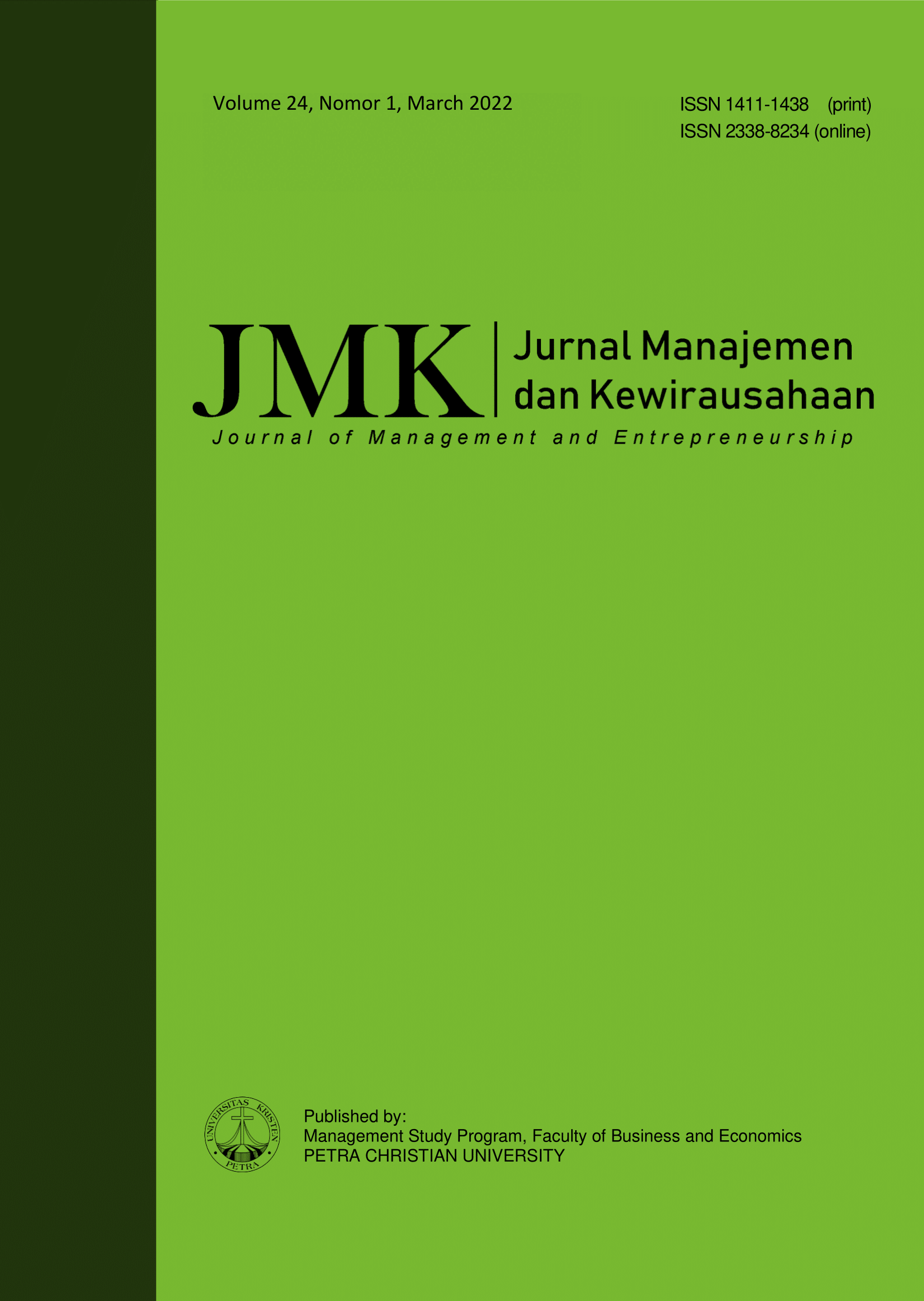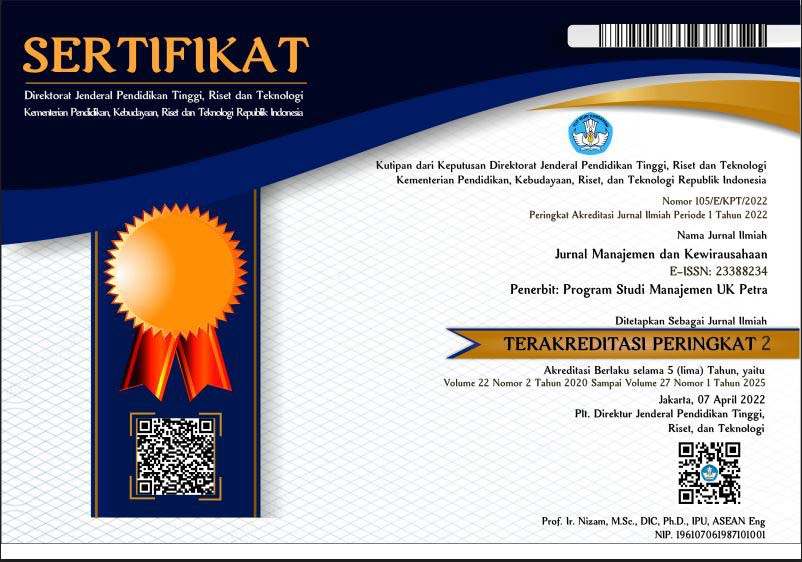BUSINESS PHILOSOPHY OF SELECTED BICOLANO ENTREPRENEURS: DISSECTING THEIR VIEWS AND INSIGHTS
 :
:
https://doi.org/10.9744/jmk.24.1.15-21
Keywords:
Bicolano entrepreneur, business philosophy, core valuesAbstract
This study aimed to seek views from selected Bicolano entrepreneurs on how they run their business, the values they believed, challenges they experienced with the current pandemic and their future plans as well. It was qualitative research that made used of structured interview and content analysis. Findings showed that Bicolano entrepreneurs’ views on the different themes were not clearly separated from each other. Most of them started the business as additional source of income. These entrepreneurs were strongly driven by their particular advocacies. In terms of core values, most of them agreed that dedication to work was viable in making business successful. The business philosophy that stood out among them was making customer satisfaction a priority. The resilience of the Bicolano entrepreneur amidst the pandemic was manifested by their continuous marketing innovations adapting to the situation.
References
Atento, S. (2019). Albay MSMEs team up with A-PAD Bicol for disaster-resilient businesses. Retrieved from http://reliefweb.int/report/philippines/albay- msmesteam-pad-bicol-disaster-resilient-businesses
Capistrano, E. (2019). Dissecting the business environment: Opportunities for greater South Korea and Philippine’s business ties in MSME. Korea Foundation Policy-oriented Research Project, Korea.
Cohen, L., Manion, L., & Morrison, K. (2007). Research methods in education, 6th Edition. New York, NY: Routledge.
Cornell, R. M., Johnson, C. B., & Schwartz, W. C., Jr. (2013). Enhancing student experiential learning with structured interview. Journal of Education for Business, 88(3), 136–146. https://doi.org/10. 1080/08832323.2012.659296
Dennehy, E. (2019). The yin and tang of business strategy. Irish Business Journal, 12(1), Article 4.
Gladwell, M. (2002). The talent myth: Are smart people overrated? Retrieved February 13, 2004, from http: www. gladwell.com/2002/2002_07_ 22_a _talent.htm.
Ireland, R. D., Reutzel, C. R., & Webb, J. W. (2005). Entrepreneurship research in AMJ: What has been published, and what might the future hold? Academy of Management Journal, 48(4), 556–564. http://dx.doi.org/10.5465/AMJ.2 005.1784 3937
Krishnan, R. (1973). Business philosophy and execu-tive responsibility. The Academy of Management Journal, 16(4), 658–669. https://doi.org/10.2307/ 254 698
Leonard, K. (2018, August 29). The importance of business philosophy. Retrieved from https://sma llbusiness.chron.com/importance-business-philo sophy-37798.html
Martinez, F. (2014). Corporate strategy and the environment: Towards a four-dimensional compatibility model for fostering green management decisions. Corporate Governance: The International Journal of Business in Society, 14, 607–636. https://doi.org/ 10.1108/CG-02-2014-0030
Morey, L. (1939). A philosophy of business adminis-tration. The Journal of Higher Education, 10(2), 68–74. https://doi.org/10.1080/00221546.1939. 11773636
Morozov, B., & Morris, R. J. (2009). Kodak’s challenge: Surviving the disruptive “winds of change”. Business. Case Journal, 16(2), 21–45.
Paladan, N. (2014). Leadership and entrepreneurial success of Bicolano entrepreneurs. Academy of Contemporary Research Journal, VIII(IV), 108–115.
Schramm, C. J. (2005). Research: Key to our entrepreneurial future. In Understanding entrepreneurship: A research and policy report. Ewing Ma-rion Kauffman Foundation.
Wong, A., Holmes, S., & Schaper, M. T. (2018). How do small business owners actually make their financial decisions? Understanding SME financial behavior using a case-based approach. Small Enterprise Research, 25(1), 36–51, https://doi. org/10.1080/13215906. 2018.1428909
Downloads
Published
How to Cite
Issue
Section
License
Authors who publish on this journal agree to the following terms:
- Authors retain copyright and grant the journal right of first publication with the work simultaneously licensed under a Creative Commons Attribution License that allows others to share the work with an acknowledgement of the work's authorship and initial publication in this journal.
- Authors are able to enter into separate, additional contractual arrangements for the non-exclusive distribution of the journal's published version of the work (e.g., post it to an institutional repository or publish it in a book), with an acknowledgement of its initial publication in this journal.
- Authors are permitted and encouraged to post their work online (e.g., in institutional repositories or on their website) prior to and during the submission process, as it can lead to productive exchanges, as well as earlier and greater citation of published work (See The Effect of Open Access).


















